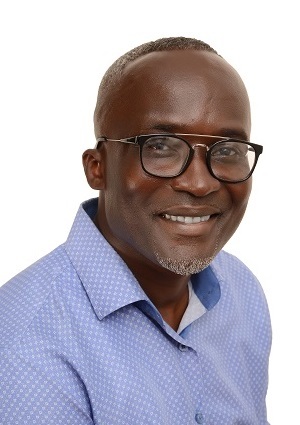Course: Tailings Dams Stability Analysis: Recent Advances in Numerical Analysis & 3D Modelling
Course Details
- Date: December 7th - 8th, 2023
- Venue: Intercontinental Hotel - Gümüşsuyu Mah. Asker Ocağı Cad. No:1 Taksim 34435, İstanbul, Turkey
- Schedule: 9 am to 5 pm
- Instructors: This course will be in English, instructed by Dr. Reginald Hammah, Director of Rocscience Africa, Dr. Anıl Yunatcı and Yalın Dogan
- Registration Fees:
- Early Bird Price - $895 USD (until October 31st, 2023)
- Regular Price - $995 USD
What’s included:
- Temporary software licenses
- PDF of course materials
- PDH Certificate
- Lunch & Snacks
Please note:
- Registrants will be responsible for their own accommodation.
- Participants must bring their own laptops (and mice)
- Participant numbers are limited.
Course Outline
Through a mix of presentations and 'hands-on' tutorials based on practical TSF embankment examples, the course will cover the following topics:
Module 1: The Craft of Tailings Engineering
- The changing nature – and permanence – of TSFs
- The need to predict TSF performance/stability by computation and modelling
Module 2: Mechanical Behaviour of Soils and Tailings
- Fundamental characteristics of soil behaviours - shearing responses of granular material (soils and tailings)
- Volume changes under shearing – dilative and contractive responses to loading.
- Change in stiffness with stress and strain levels
- Density/void ratio/state
- Dilatancy (dilation angle)
- Drained (effective stress) vs undrained (total stress) analyses
- Brittle vs ductile behaviour
- Consolidation
- Post-peak and residual behaviour
- Critical state/liquefaction
- Parameters for characterizing the mechanical behaviour of soils and tailings.
- Constitutive material relationships, including critical state soil mechanics laws.
Module 3: Overview of TSF Stability Analysis and Modelling with Software
- Failure mechanisms of TSFs
- Slope instability
- Foundation failure
- Liquefaction
- Measures of stability
- Factor of safety
- Probability of failure
- Deformations
- Seepage
- Factors affecting embankment stability – review of inputs required for TSF stability analysis.
- Limit equilibrium methods (LEMs)
- Numerical methods
Module 4: Harmonization of Site Characterization Data, Numerical Analyses and Sensor Based Monitoring for Added Value Engineering at Tailing Dam Facilities
Module 5: Fundamentals of Limit Equilibrium Methods (LEMs) and 3D Stability Analysis
- Methods of slices (Bishop, GLE/Morgenstern, Janbu, Spencer, etc.)
- Failure surface shapes
- Assumptions of LEM
- Choosing appropriate methods of slices
- When should we model in 3D?
- Developing 3D TSF models
- Interpreting 3D LEM results
Module 6: Numerical Methods
- Stress-deformation analysis
- How stress-deformation analysis (deformations, strains, stress states, pore water pressures, etc.) can be used to assess dam safety and performance.
- Overview /fundamentals of numerical methods – finite element method (FEM), finite difference method (FDM), boundary element method (BEM), discrete element method (DEM)
- Shear strength reduction (SSR) method for calculating slope factors of safety.
- Development of relevant stress-deformation analysis (numerical) models that capture real-world TSF performance.
- Understanding different drainage conditions – drained, undrained, and coupled (consolidation) conditions
- Modelling pore pressures in tailings dams and foundations
- Evaluating stability (factors of safety) and deformations under various loadings (including liquefaction potential under static loadings)
- Where to put model boundaries
- Boundary conditions to be applied.
- Meshing of models
Module 7: Verification of Models and Model Assumptions
- Capturing of diverse geotechnical and hydrogeological conditions, material behaviours (and associated strength parameters) under various loadings and multiple construction stages
- Judgement of analysis outputs for reasonableness (results that reflect actual performance and reproduce the essential aspects of TSF behaviours
Module 8: Seepage and Groundwater Analyses
- Pore pressure changes in TSF embankments, stored tailings, and foundation
- Modelling pore pressures in tailings dams and foundations
- Steady-state seepage analysis
- Transient analysis
- Coupled analysis
- Excess pore pressure
--
For any additional queries, please reach out to Yalin Dogan.
--
Course Instructors:

Dr. Reginald Hammah, Ph.D., P.Eng. Director of Rocscience Africa, holds a Ph.D. in Civil Engineering from the University of Toronto and brings over 20 years of experience in rock mechanics and geotechnical engineering. He uniquely blends practical problem-solving experience with software tools and theoretical understanding of geotechnical behavior. He is well known for breaking down complex problems into simpler, more familiar, and solvable components.

Dr. Anıl Yunatcı works as a senior geotechnical engineer at GeoDestek Ltd. He has built experience in the field of geotechnical earthquake engineering, seismic hazard assessment, numerical modeling, geotechnical monitoring and soil investigation studies over 20 years. Dr. Yunatcı received his Bachelors degree in Civil Engineering in 1999 from Gazi University in Turkey. He then obtained his Masters and Ph.D. in geotechnical engineering from Middle East Technical University, Turkey in 2010. Dr. Yunatcı is in charge of organizing and developing numerous customized Rocscience courses and workshop events nationwide and internationally. Within GeoDestek, he has been participating as a co-lecturer in Rocscience oriented numerical modeling courses since 2013.

Yalın Dogan is working as an Engineering Geologist at GeoDestek. He received his Bachelor’s degree in Geological Engineering in 2014 from Hacettepe University. He then obtained his Master’s degree in geotechnical engineering from Gazi University in 2019 and he is currently pursuing his Ph.D. in geotechnical engineering. He is also currently serving as a member of the Geotechnics and Engineering Geology Commission in Chamber of Geological Engineers of Turkey. His professional and research experiences include geotechnical site characterization, in-situ test, slope stability, 2D and 3D effects in slope stability problems, shear strength reduction approach and effects of various methods in bi-planar failure mechanisms. Within Geodestek, he has been participating as a co-lecturer in Rocscience oriented numerical modeling courses since 2018.
Dec 7, 2023 - Dec 8, 2023
Istanbul, Turkey
The course will be conducted in English
- Early Bird: USD $895
(until Oct 31, 2023) - Regular: USD $995